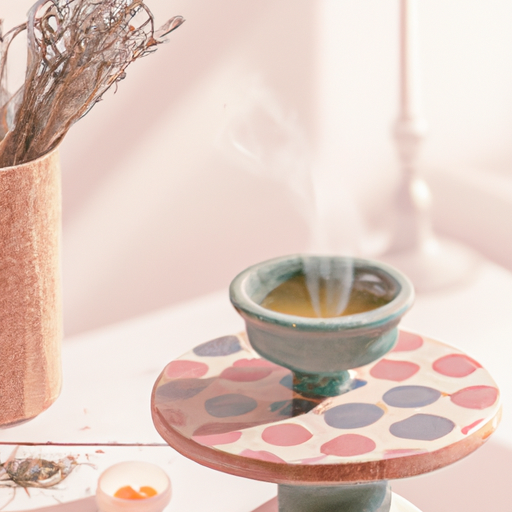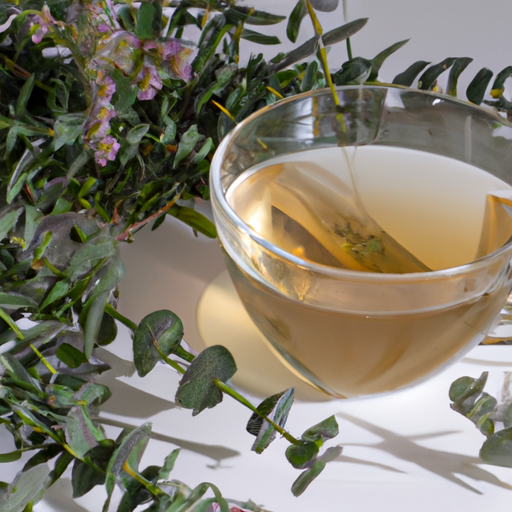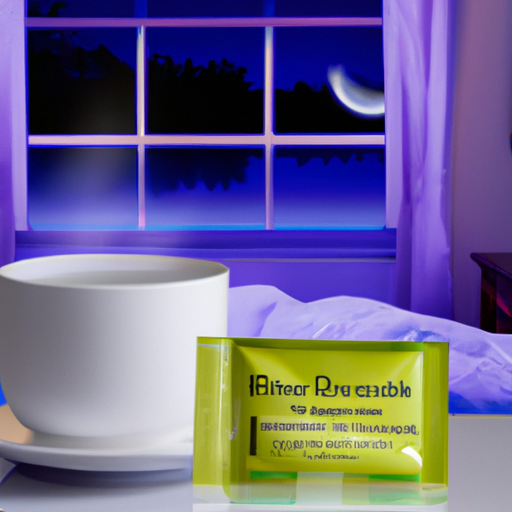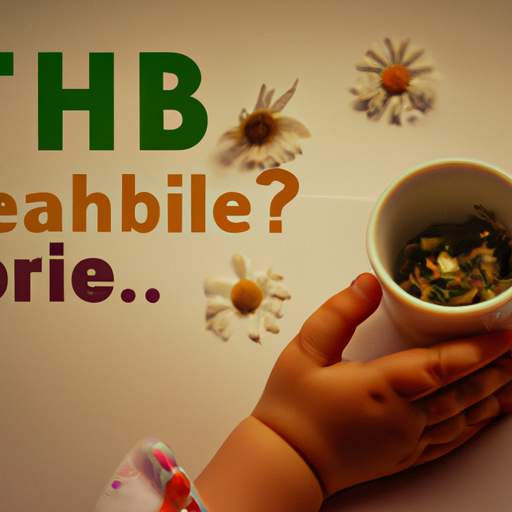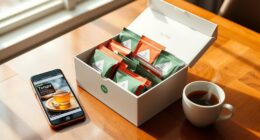I understand the frustration of needing a caffeine kick but only having herbal tea on hand.
You may have heard that herbal teas are naturally caffeine-free, but what if I told you there’s a way to caffeinate your favorite herbal brew? Yes, you heard me right! In this article, I will share with you some tried and tested methods to give your herbal tea that much-needed kick.
Now, you might be wondering how this is even possible. Well, here’s the truth: while most herbal teas are indeed caffeine-free, there are ways to infuse them with a dose of caffeine. Whether it’s by incorporating caffeine-rich herbal ingredients, mixing them with caffeinated tea or coffee, or even adding caffeine supplements, there are several techniques you can try.
So, if you’re tired of sipping on herbal tea that leaves you feeling less than energized, keep reading. I’ll guide you through the process of caffeinating your herbal tea, step by step.
Get ready to enjoy a revitalizing cup of herbal tea that packs a punch!
Key Takeaways
- Mixing herbal teas with caffeinated tea or coffee can increase their caffeine content.
- Matcha powder and cacao nibs can be added to herbal tea to increase its caffeine content.
- Adjusting the brewing time and temperature can enhance the caffeine content in herbal tea.
- Experimenting with different blends and combinations of herbal tea can create a personalized caffeinated beverage.
Understand the Natural Caffeine Content of Herbal Teas
You need to know that herbal teas don’t naturally contain caffeine, so don’t rely on them for that extra energy boost. However, if you’re looking to explore alternative caffeine sources or reduce your intake of traditional caffeinated beverages, herbal teas can still be a great option.
Understanding the impact of caffeine on the body and mind is crucial when choosing herbal teas for a caffeine boost. While herbal teas are generally caffeine-free, there are certain ingredients you can look for that naturally contain caffeine, such as yerba mate, guayusa, and yaupon. These ingredients provide a gentle, sustained energy without the jitters or crash that can come from other caffeinated beverages.
So, let’s dive into how to choose caffeine-rich herbal ingredients for your tea.
Choose Caffeine-Rich Herbal Ingredients
Indulge in the tantalizing embrace of nature’s energizing elixirs, crafted from a blend of vibrant and invigorating ingredients that’ll leave your senses buzzing with fervor.
While herbal teas are typically known for their caffeine-free properties, there are certain herbal alternatives that can provide a natural boost. It’s important to note that the caffeine content in different herbal teas can vary significantly.
For instance, yerba mate is a popular herbal ingredient that contains a moderate amount of caffeine, providing a gentle pick-me-up. Another option is guayusa, which is known for its rich caffeine content and smooth flavor.
These caffeine-rich herbal ingredients can be a perfect addition to your tea collection, offering a refreshing and stimulating experience.
As we explore further, you’ll discover how to mix herbal teas with caffeinated tea or coffee to create your own unique blend that suits your caffeine needs.
Mix Herbal Teas with Caffeinated Tea or Coffee
Discover the delightful harmony of blending your favorite energizing teas with a splash of invigorating coffee or tea for a truly unique and satisfying experience.
Mixing herbal teas with energy drinks or incorporating caffeine into decaffeinated herbal teas can give you the much-needed boost you desire.
When it comes to mixing herbal teas with energy drinks, you can experiment with different combinations. For instance, adding a shot of espresso or a small amount of coffee to your herbal tea can create a rich and flavorful beverage.
Alternatively, you can mix a caffeinated tea, such as black or green tea, with your herbal tea to increase its caffeine content. This allows you to customize your caffeine intake based on your preferences.
Transitioning to the next section, let’s explore the option of using caffeine supplements for an even stronger caffeinated herbal tea experience.
Use Caffeine Supplements
Boost your energy levels to new heights by incorporating caffeine supplements into your favorite blends of tea. If you’re looking for caffeine alternatives or want to enhance the benefits of herbal tea, caffeine supplements can be a great addition. These supplements are available in various forms, such as capsules or powder, and can easily be mixed into your tea for an instant energy boost.
Not only do caffeine supplements provide a quick pick-me-up, but they also offer the added benefits of herbal tea, like improved digestion or stress relief. Just be sure to follow the recommended dosage and consult with a healthcare professional if you have any concerns.
Now, let’s move on to the next section about how to add caffeinated ingredients to your herbal tea.
Add Caffeinated Ingredients to Your Herbal Tea
When it comes to adding caffeine to my herbal tea, I’ve found two key ingredients that work wonders: matcha powder and cacao nibs. Matcha powder is made from finely ground green tea leaves and provides a smooth and steady caffeine boost. On the other hand, cacao nibs are small pieces of crushed cocoa beans that not only add a rich flavor to my tea but also contain a natural source of caffeine. By incorporating these ingredients into my herbal tea, I can enjoy a delicious and energizing beverage without compromising on taste or quality.
Matcha Powder
If you’re craving a cozy cup of herbal tea with a vibrant twist, look no further than matcha powder. Matcha, a finely ground powder made from specially grown green tea leaves, adds a unique flavor and a boost of caffeine to your tea.
One popular way to enjoy matcha is by making a matcha latte. Simply whisk matcha powder with hot water, then add your choice of milk and sweetener for a creamy and invigorating drink.
Matcha powder can also be incorporated into various recipes, such as matcha smoothies or matcha-infused baked goods. Its vibrant green color and distinct taste make it a versatile ingredient.
As we move into the next section about cacao nibs, you can also consider combining matcha powder with these crunchy chocolatey bites to create an indulgent and energizing tea experience.
Cacao Nibs
To elevate your tea experience, enhance the richness and depth with the addition of cacao nibs. Cacao nibs are small pieces of crushed cacao beans that offer a delightful twist to your herbal tea. These little nuggets are packed with a variety of benefits.
Firstly, cacao nibs are rich in antioxidants, which can help protect your body against free radicals and promote overall health. They also contain natural mood-boosting compounds like serotonin and phenylethylamine, which can enhance your mood and promote feelings of well-being.
Lastly, cacao nibs can add a deliciously nutty and slightly bitter flavor to your tea, creating a unique and indulgent taste experience. You can also experiment with cacao nibs recipes, such as adding them to a chai tea blend or steeping them with mint leaves for a refreshing twist.
Now, let’s delve into the next section about adjusting brewing time and temperature.
Adjust Brewing Time and Temperature
Brew your herbal tea at a higher temperature and for a longer time to fully infuse the caffeine into the tea leaves. By adjusting the brewing time and temperature, you can enhance the caffeine content in your herbal tea. Different types of herbal tea require different brewing methods to achieve the desired caffeine boost. Here is a helpful table to guide you:
| Herbal Tea Type | Brewing Time | Brewing Temperature |
|---|---|---|
| Chamomile | 5-7 minutes | 200°F |
| Peppermint | 3-5 minutes | 212°F |
| Rooibos | 6-8 minutes | 205°F |
Properly storing herbal tea is also crucial in maintaining its freshness and flavor. Store your tea in an airtight container away from light, heat, and moisture. Now that you know how to adjust the brewing time and temperature, you can experiment with different blends and combinations to create your perfect caffeinated herbal tea.
Experiment with Different Blends and Combinations
Now that we’ve discussed adjusting brewing time and temperature, let’s dive into the exciting world of experimenting with different blends and combinations of herbal tea. This is where the real fun begins! By trying unique tea blends, you can create a personalized caffeinated herbal tea that suits your taste preferences perfectly.
Here are three delightful combinations to get you started:
-
Energizing Citrus Burst: Combine your favorite herbal tea with a zesty citrus infusion like lemon or orange. The bright flavors will invigorate your senses and provide a refreshing pick-me-up.
-
Spiced Chai Fusion: Mix a herbal tea with warm spices like cinnamon, cardamom, and ginger for a cozy and aromatic experience. This combination will not only awaken your senses but also provide a comforting and energizing effect.
-
Floral Delight: Blend a floral herbal tea, such as lavender or chamomile, with a hint of mint or lemongrass. This combination of delicate flavors will create a soothing and uplifting brew.
Remember, the possibilities are endless when it comes to experimenting with different flavors and tea blends. Let your taste buds guide you on a delightful journey of caffeinated herbal tea exploration!
Frequently Asked Questions
Can I still enjoy the benefits of herbal tea if I don’t want any caffeine?
Yes, you can still enjoy the many benefits of caffeine-free herbal tea. There are plenty of alternatives available if you prefer to avoid caffeine, such as chamomile, peppermint, or rooibos tea.
Are there any potential side effects of consuming too much caffeine from herbal tea?
There are potential health risks associated with consuming too much caffeine from herbal tea. It is important to be mindful of your recommended caffeine intake and monitor for any negative side effects.
Can I still get a good caffeine boost from herbal teas even if they are naturally low in caffeine?
Yes, you can still get a good caffeine boost from herbal teas, even if they are naturally low in caffeine. There are caffeine alternatives like guarana or yerba mate, and you can also maximize caffeine absorption by drinking tea on an empty stomach.
Are there any herbal ingredients that naturally contain caffeine that I should avoid if I want to limit my caffeine intake?
To limit caffeine intake, avoid herbal ingredients like guarana, yerba mate, and guayusa, which naturally contain caffeine. Opt for herbal teas with natural caffeine, such as black or green tea, to enhance alertness.
Can I use decaffeinated tea or coffee to mix with my herbal tea to still enjoy the flavor without the caffeine?
Sure, to enjoy the flavor of herbal tea without caffeine, I recommend using decaffeinated tea or coffee as an alternative. They provide a similar taste profile but without the stimulating effects of caffeine.
Conclusion
So there you have it, folks! We’ve explored various ways to caffeinate your herbal tea and now you’re armed with the knowledge to make your own invigorating concoctions. Whether you choose to mix in some caffeinated tea or coffee, add caffeine supplements, or experiment with different blends and combinations, the choice is yours.
Remember, the key is to find what works best for you and your taste buds. So go ahead, grab your favorite mug, steep your herbal tea, and get ready to kick-start your day with a delightful, energizing sip. Cheers to a perfectly perked-up morning!


